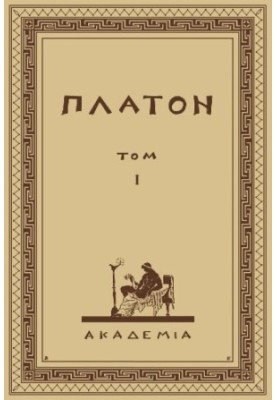Complete collection of works of Plato in 15 volumes. Volume I. Euthyphron. Apology of Socrates. Criton. Fedon
 Instant download
Instant download
after payment (24/7)
 Wide range of formats
Wide range of formats
(for all gadgets)
 Full book
Full book
(including for Apple and Android)
The Complete Works of Plato in 15 Volumes . Tom I. Eutifron . The Apology of Socrates . Criton . Phaedo is not just a collection of philosophical texts, but a real treasure trove of wisdom that opens the door to the world of ancient Greek philosophy before the reader. Plato, one of the greatest thinkers of all time, addresses in his writings the eternal questions that have plagued mankind for millennia. This volume includes four key dialogues, each offering a unique perspective on morality, justice, and the nature of knowledge. In Euthyphronus, Plato explores the concept of piety and righteousness through a dialogue between Socrates and Euthyphronus, who is about to accuse his father of murder. This dialogue makes us think about what true virtue is and how it relates to the laws of society. The reader is immersed in thinking about what it means to be righteous, and how often social norms can contradict the inner moral compass. "The Apology of Socrates" is perhaps one of Plato's most famous texts, in which he conveys his teacher's protective speech during a trial. Here Socrates acts as a defender not only of himself, but also of philosophy as such. His words that “an unjustly condemned person is one who does not know what he is doing” make one think about the meaning of knowledge and self-awareness. This part of the book is particularly fascinating for those interested in freedom of speech, justice, and personal accountability. In Kryton, Plato continues to explore philosophical ideas, raising questions about duty and justice. Socrates, while in prison, discusses with Criton whether he should run to avoid execution. This dialogue makes the reader reflect on what it means to be true to one's principles, even when they endanger one's life. The themes raised in this work are still relevant today, when many face moral dilemmas. Finally, in The Phaedo, Plato immerses us in reflections on the immortality of the soul and the nature of life after death. This dialogue, taking place in the last hours of Socrates' life, is filled with deep philosophical reflections on what happens to the soul after death. Plato here masterfully combines logic and poetry, creating a text that not only informs, but also inspires. This book will be of interest to a wide range of readers: from philosophy students to literature lovers, as well as anyone interested in ethics, politics and human nature. Plato in his unique style, combining dialogical form with deep reflection, makes complex ideas accessible and understandable. His works remain relevant in the modern world, where questions about justice, morality and the meaning of life still concern minds. If you are looking for books that will make you think about eternal truths, "The Complete Collection of Plato's Creations in 15 Volumes. Tom I'll be a great choice. This book will not only enrich your inner world, but will also help you better understand yourself and the world around you. Plato, with his perceptive mind and deep reflections, remains one of the most influential philosophers, and his works, such as The State, Phaedrus, and Timaeus, also deserve your attention. Reading Plato is not just an immersion in philosophy, it is a journey into the world of ideas that shape our understanding of life and humanity.
LF/804817206/R
Data sheet
- Name of the Author
- Plato
- Language
- Russian
- Release date
- 1923
- Volume
- Том I. Евтифрон. Апология Сократа. Критон. Федон















